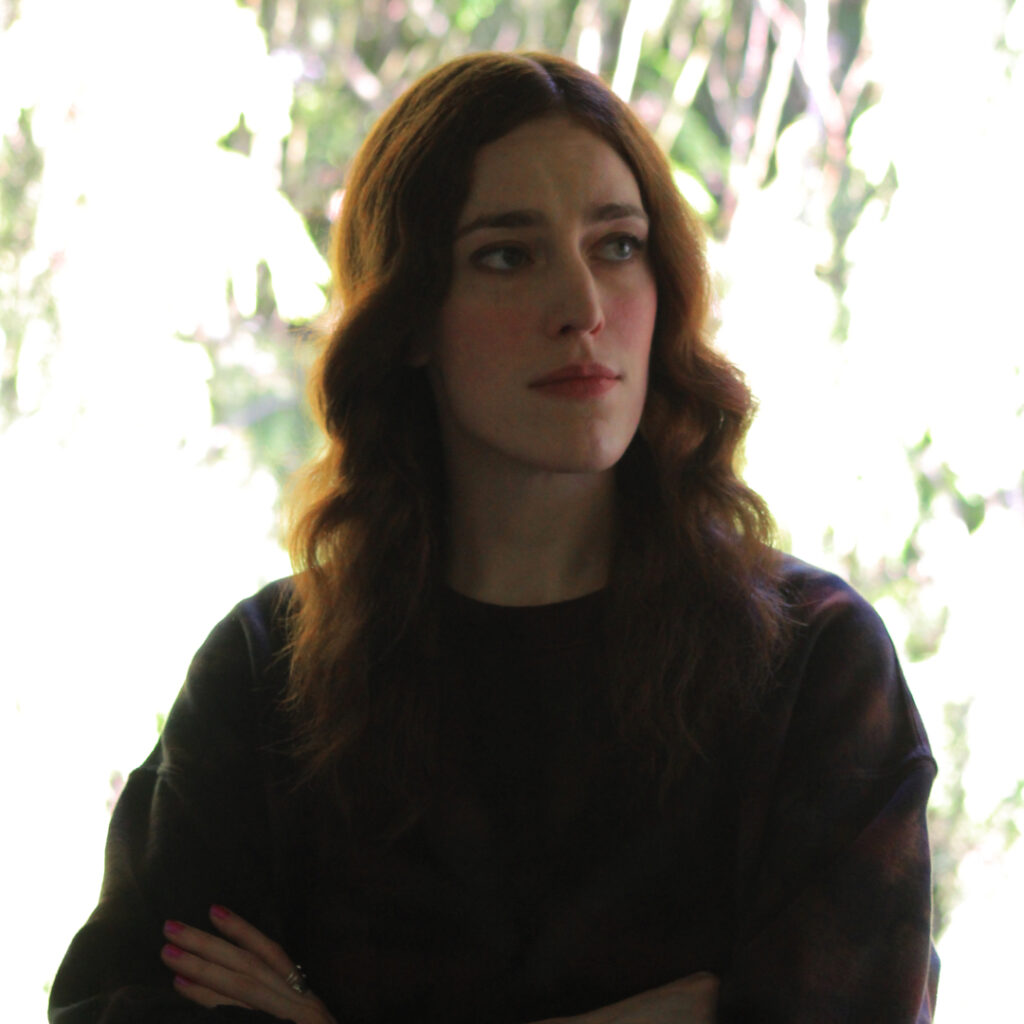We’re thrilled to introduce the 2025 Oregon Literary Fellowship Recipients with individual features on our blog. Out-of-state judges spent several months evaluating the 400+ applications we received, and selected thirteen writers and two publishers to receive grants of $3,500 each. Literary Arts also awarded two Oregon Literary Career Fellowships of $10,000 each. The 2025 Fellowship recipients were recognized at the 2025 Oregon Book Awards Ceremony on April 28, and a public reading event featuring this year’s Fellows will take place on July 8 at Literary Arts.

Christine Barkley (she/her) is a 2025 Oregon Literary Fellow in Poetry and the recipient of the Poetry Community Fellowship. Christine is an Irish-American writer whose work addresses intersecting patterns of chronic illness, neurodivergence, generational trauma, and biological legacies. Her poems and essays can be found in The Journal, Yale Review, West Branch, Massachusetts Review, Hayden’s Ferry Review, Manhattan Review, Poet Lore, Portland Review, the Pinch, and Missouri Review, among others. Christine was a finalist for the 2024 Perkoff Prize. She is the Associate Poetry Editor of The Dodge, and a poetry reader for TriQuarterly.
Q&A WITH LITERARY ARTS
What excites you the most about receiving an Oregon Literary Fellowship?
The recognition of the Fellowship has been an incredibly validating force, especially because some of the poems in my work sample marked the beginning of a pretty vulnerable tone shift for me. It can be so difficult to maintain confidence and momentum as a writer without clear feedback and, more concretely, without financial support. The increased security and stability provided by the grant has been life-changing, well beyond the creative freedom it has afforded me.
How would you describe your writing process or creative practice?
Ritualistic. Whimsical. Sporadic. Dialectical. I need familiarity and novelty in equal measure in order to create; there are predictable structures around much of my writing/editing process, but the inciting incident (a phrase, a vibe) never comes when I’m settled into work mode. Activities involving a change of scenery or interaction—walks, hikes, visits, long drives, day-trips—are crucial for generating new pieces. That can create quite an obstacle during periods when I’m bed-bound or house-bound. Sometimes, somewhat paradoxically, those seemingly endless days of immobility and isolation become an inciting incident by way of their endlessness.
What authors or books have shaped you the most as a writer?
Garments Against Women and The Undying by Anne Boyer. Agua Viva by Clarice Lispector. A Little Middle of the Night by Molly Brodak. Authoring Autism by M. Remi Yergeau. Wittgenstein’s Mistress by David Markson. Marie Howe. Claudia Rankine. Czesław Miłosz. Patricia Lockwood. Louise Glück. Ben Lerner. Audre Lorde. Oliver Sacks. Jenny Slate. José Saramago. Shirley Jackson. Eavan Boland.
Are there any Oregonian writers you look to for motivation or inspiration?
Familiarizing myself with the work of the other 2025 Fellows has been a great opportunity to follow the trajectories of some modern, local writers. I’ve found that immediacy really invigorating. I also admire Kieran Mundy, one of last year’s Fellows in Fiction, who writes skillfully on many shared interests.
What projects are you working on right now?
I’m working on my first poetry collection, which has been evolving with me for a few years now, on confluences of social inheritance, ecological inheritance, and autonomy—especially as they relate to chronic illness, neurodivergence, and trauma. More broadly, I’m thinking about pattern, communication, connection, recollection, recognition, repetition, divergence, generation, and narrative.
Do you have any advice for future applicants?
For work samples and project descriptions, I would strongly encourage prioritizing the themes about which you’re most passionate, even if you worry that others might not be able to relate. I’ve found that this improves both my internal experience of the process and my success rate for external goals.
More generally: keep applying! Apply for the Fellowship. Apply for as many other opportunities as you’re able (in terms of time, energy, and accessibility). I’ve been rejected at least once by almost every publication that ultimately accepted my work, and I was rejected for this very Fellowship last year. I am immensely grateful that Literary Arts does not require application fees, which are barriers to entry for so many—take advantage of that accessibility wherever you can find it.
WRITING SAMPLE EXCERPT
Semantics of Shock
I mourned today.
Without warning
I expected today.
In anticipation of company
I cleaned. I put out
the first fires and folded
the fine linens. At daybreak
the world sank and rose
against itself. The glassware
shattered fatefully, or
faultlessly. The sense
of me rent. After shock
came the slip, the slow creep,
the rooms for living divided
from the rooms for remembering
the dead. It came in waves.
No one came. I was heaved
and wailed without ceremony.
No procession. I was beside
myself. No sirens. I reset
the fires. Found the missing
irrecoverable after all
hopes. Housed in the strong
bones of grief my persistent
life pulsed opioid slow,
so steady it neared
stilling. I hoped. No pieces
to together. The broken
morning brought his body
to a newborn edge of earth.
I didn’t know what to do
with it. Without. In solace
I severed or clung.
I cleaved. The sense
of me rent. What I meant
he would have known.
Previously published in the Yale Review, November 2024.
JUDGE’S CITATION
“To encounter a Christine Barkley poem is to enter a kind of dance. Through repetition, refraction, and resolve, Barkley takes readers through thematic cycles that remind one that time is meant to rhyme. Consider the poem ‘Semantics of Shock,’ which opens “I mourned today. / Without warning / I expected today.” Beyond embodying the existential uncertainty loss can breed, this potent back-and-forth precedes a series of questions that implicate both speaker and reader. Here we find dance again: a poet willing to extend a hand to a reader as if to say, time is calling us, let’s make a flourish of it together.”
– Kweku Abimbola

